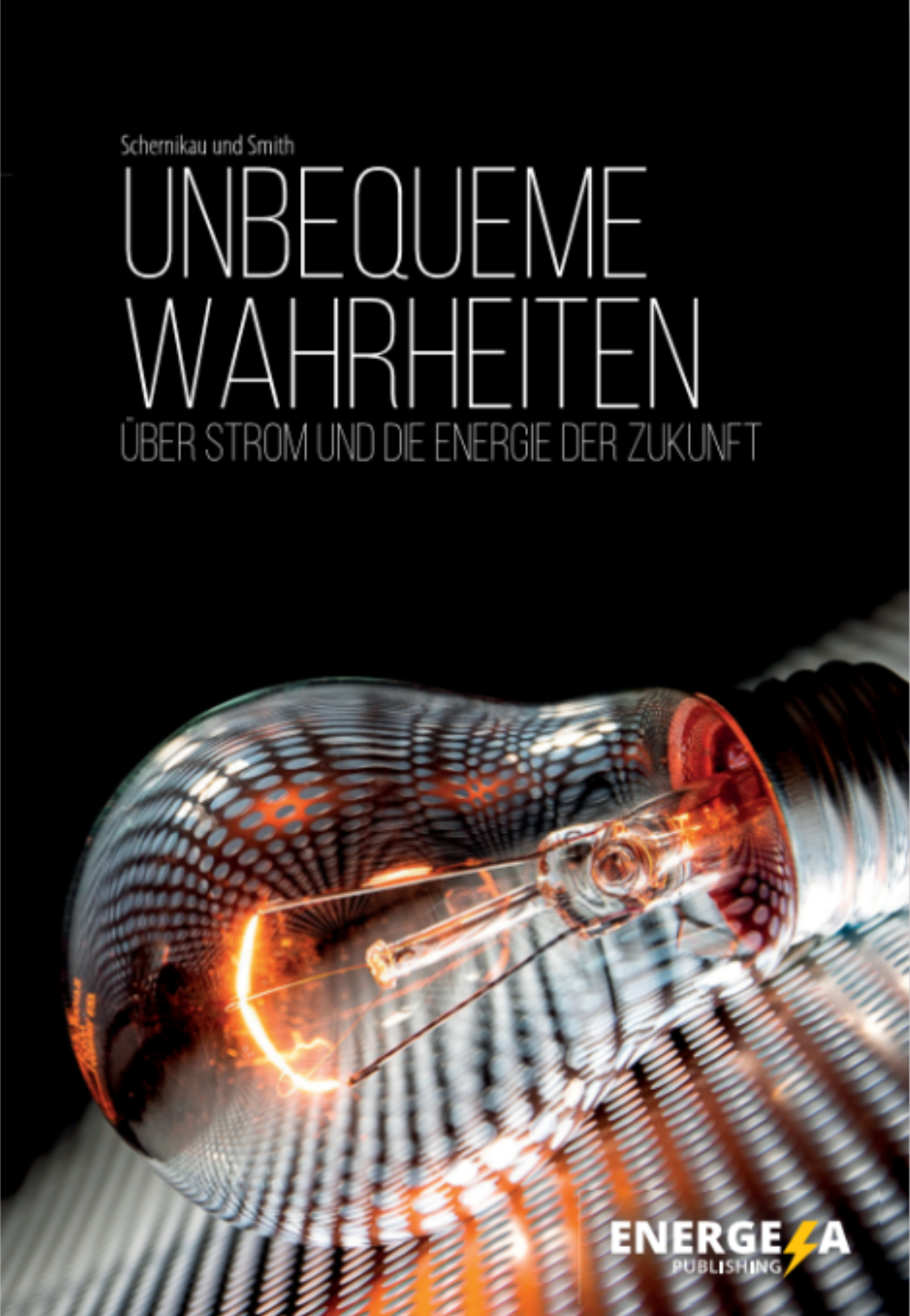
ÜBERBRÜCKUNG DER LÜCKE…
ENTDECKE DIE WISSENSCHAFT DER ENERGIE UND ERKUNDEN DIE SCHWIERIGEN FRAGEN
“Elektrizität ist für die moderne Zivilisation das, was Blut für den menschlichen Körper ist.“
Aber verstehen wir die globale Energielandschaft wirklich?
In diesem innovativen neuen Buch, Unbequeme Wahrheit über Strom und die Energie der Zukunft nehmen die Autoren die globale Energiewirtschaft unter die Lupe und konzentrieren sich dabei auf die Elektrizität.
Was sie enthüllen, ist überraschend.
Erfahre, warum Europa von Energieknappheit geprägt ist. Finde heraus, ob erneuerbare Energien uns retten können, und welche Energiequellen am sinnvollsten sind.
Die Ergebnisse der Studie sind vielleicht überraschend. Finde heraus, was es wirklich braucht, um den Übergang zu einer grüneren Zukunft zu schaffen.
Reviews
The Unpopular Truth About Electricity and the Future of Energy is a refreshing take on the debate about energy and its future. Lars Schernikau argues that the debate has been hijacked by politicians, and it's time to look at it from a practical point of view. He writes with an insightful perspective and a wealth of knowledge from his experience as a commodity trader.
The book is a must-read for anyone interested in the future of energy. It is an eye-opening account of the practicalities of energy production and consumption. Lars Schernikau provides a compelling case for a balanced energy mix and an end to the political bickering that has plagued the sector for far too long.
The Unpopular Truth About Electricity and the Future of Energy is a well-researched and thought-provoking book that challenges conventional wisdom about energy. Lars Schernikau brings a unique perspective to the debate, having worked in the coal markets for many years. He makes a compelling argument for a pragmatic approach to energy, free from political dogma.
Lars Schernikau has written an excellent book that delves deep into the complexities of the energy sector. The Unpopular Truth About Electricity and the Future of Energy is an important contribution to the debate about energy and its future. The author provides a balanced view of the different sources of energy and the practicalities of their production and consumption.
The Unpopular Truth About Electricity and the Future of Energy is a timely and informative book that should be on the reading list of anyone interested in the energy sector. Lars Schernikau writes with passion and conviction about the need for a balanced energy mix and an end to the political wrangling that has plagued the sector. His insights and expertise make this an essential read for anyone concerned about the future of energy.
Autoren

Dr. Lars Schernikau ist Energiewirtschafter, Unternehmer, Rohstoffhändler und Autor.
Ausgebildet an der New York University in den USA, INSEAD in Frankreich und der TU Berlin in Deutschland, hat er zwei Jahrzehnte lang mit Rohstoffen in Asien, Europa, Afrika und Nordamerika gearbeitet.
Er arbeitete zuvor für die Boston Consulting Group in den USA und in Deutschland.
HMS Bergbau AG
(www.hms-ag.com)
Prof. William Hayden Smith
Prof. William Hayden Smith is a Professor of Earth and Planetary Sciences at the McDonnell Center for the Space Sciences at Washington University, St. Louis, MO, USA.
Prof. Smith promovierte an der Princeton University.

Inhalt
01
Strom und Investitionen
– die aktuelle Situation
02
Variable „Erneuerbare“ Energie
und Lagerung
Wind und Sonne – die Trennung zwischen installierter Leistung und erzeugtem Strom
Kapazitätsfaktoren
Übertragung, Verteilung, Konditionierung und Schwarzstart
Energiespeicher
Wasserstoff und sein Vergleich mit Kohlenwasserstoffen
Materialeinsatz und graue Energie
Primärenergie und Wärmepumpen
03
Stromkosten
und Energierückgabe (eROI)
Volle Stromkosten – FCOE
Energierendite der investierten Energie ‒ eROI
Der Einfluss des 2. Hauptsatzes der Thermodynamik auf Energiesysteme
04
Die Projektzukunft von
Energie und „Dekabonisierung“
Wachstum der Primärenergie (PE) bis 2050
Energieknappheit und ihre Auswirkungen auf Preise und Wirtschaftstätigkeit
Dekarbonisierung und „Netto-Null“ – Kosten für einkommensschwache Bevölkerungsgruppen
05
Die realistische Zukunft von
Energie und Nachhaltigkeit
06
ZUSAMMENFASSUNG


